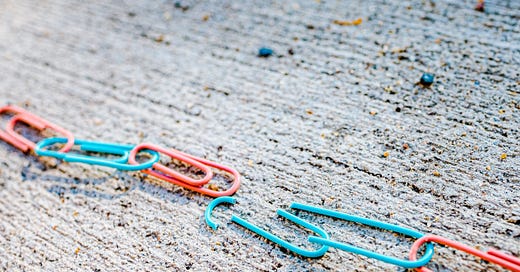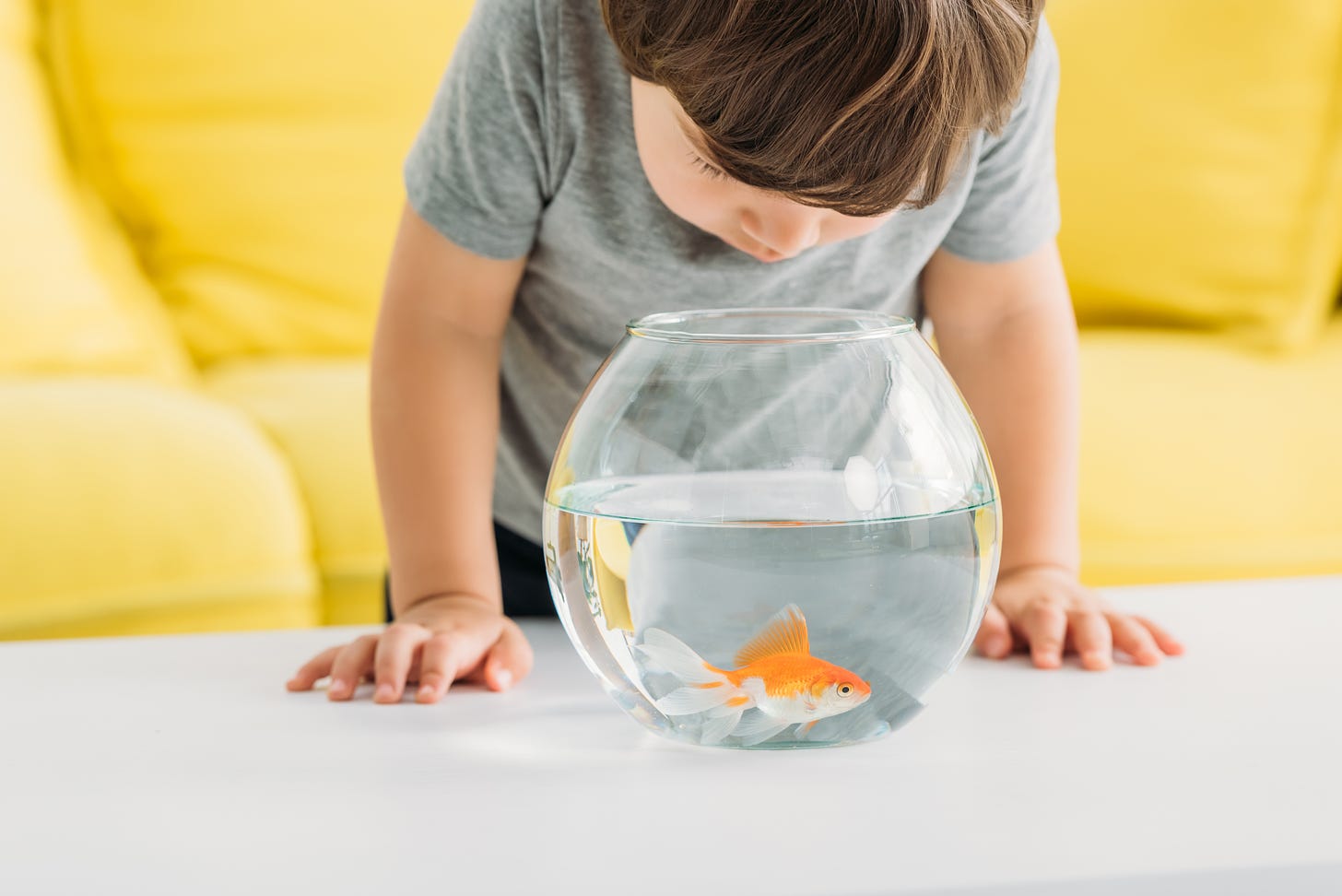February is the month for heart-shaped candies and Hallmark cards, but every month is about relationships. They are one of the single most powerful forces in our lives. The quality of our life is largely contingent on the quality of our relationships. Figuring out how to have healthy ones matters—a lot.
Relationships can hurt or heal us.
A common reason patients come to therapy is relationship difficulties. People often fall into familiar problematic patterns that they reply with different people in different places throughout their lives--relationship variations on a theme. "Why do I keep doing this?" “Why do I keep coming back to this kind of person?" We replay what is known and familiar, even if it doesn't serve us well. Why? It may sound cliche to say, but usually, it starts with our parents.
Psychologist and researcher Jonathan Shedler explains, "Our earliest attachments create the templates for subsequent relationships. With the result that we repeat relationship patterns through our lives. Because they are present from the beginning, our patterns may be as invisible to us as water is to a fish." Our first relational experiences embed deep in our brain's circuitry. Things that fired and wired together before we could even talk, play out in our relationships forever.
Because infants must adapt, they will adapt. Tiny humans instinctually know who they rely on to survive. Babies figure out what they must do to maintain connections with caregivers. An infant develops a sense of security when a caregiver is attuned, dependable, and reliably responds to their child's needs and cues in a supportive manner. As they get older, secure children feel safe to explore. They trust there will be a stable spot to land and a loving person to return to if they hit a bump and things don't turn out. They know they have a solid, secure base, come what may.
Infants aren't born with strategies to manage their feelings. It's hard being a kid - their little brains are on fire a lot of the time. When they're melting down out, they need help. We learn to cope with strong emotions and stress in concert with our caregivers. Parents scaffold emerging EQ in their child when they accurately read what their child is feeling, name and reflect it back, and respond with warmth, containment, and support. Through this process, children start to discover what their own emotions are. They learn to manage their feelings first through co-regulation with their parents. Over time, these interactions help develop a child's ability to regulate more independently and build their emerging sense of self.
Some parents worry that they are "messing up" their kids. If you are even asking yourself that question, it's a good sign. It speaks to something important—you care, you're trying, and you're aware that your words and actions have a significant impact on the life of your child. This alone goes a long way. No parent is perfect. The goal is "good enough.” The things caregivers do when things go sideways are almost always more important than the mistakes themselves. Ruptures are inevitable, the repairs are what really counts.
At times, circumstances between caregivers and their children are less than ideal. Most parents are doing the best with what they can at any given time, but the relational experiences and emotional EQ they have to work with vary significantly. Some parents have their own unresolved trauma, mental health challenges, or personal struggles that get in the way of reacting to their young children with reliable empathy and attuned support. When a parent doesn't provide a base of security, children quickly learn what they need to do to maintain proximity to a parent. They instinctually anticipate and behave to survive. If communicating feelings may threaten to overwhelm a parent or will likely result in pain, kids shut down their emotions and desire for contact. Other insecurely attached children engage in “protest behaviors” in a bid to attract and maintain support and attention. They may exhibit sustained, high levels of distress and seem inconsolable. At the core of each of these responses is intense anxiety. The fear just looks different on the surface. Children are constantly trying to figure out, "Will you leave? Will you come back? Do you care? Will you hurt me or help me feel better?"
Early experiences set the stage for different "attachment patterns" that we carry with us long after we leave our first home. Attachment influences how individuals tolerate closeness and separation, handle conflict, experience intimacy, and communicate their wishes and needs. Attachment affects what we expect from other people in relationships. It drives how we hold people hostage or push them away. Attachment impacts whether we respond with adaptive flexibility when confronted with life's complex, often difficult circumstances. Attachment drives how we hold people hostage or push them away.
A significant body of psychological research has been devoted to the topics of infant and adult attachment. The schools of investigation are separate but related. To help you understand a bit more about the concept, I'm going to blend some terminology from the categorizations that academics have used. Estimates suggest that about 50% of the population falls into the "secure" category" while 20% of people exhibit anxious traits, 25% act more avoidant, and a small subset exhibit more severe disorganized behaviors. I suspect you will be able to see yourself (and perhaps your partner) in one of four descriptions:
SECURE
People with a secure attachment style are generally adept at managing their emotions. What they think and feel is congruent with their expressions and behavior. Secure individuals tend to be confident and are connected to a sense of personal agency. They have the courage to be creative and take calculated risks. Relationally, they have the capacity to develop deep, meaningful connections with others but are comfortable during periods when they are alone, too. Securely attached adults trust others and are resilient in the face of adversity.
ANXIOUS/PREOCCUPIED
People with this attachment style are often flooded by their emotions. Psychologist Diana Fosha aptly described that people who are anxious/preoccupied can “feel (and often reel) but struggle to deal.” They work hard to read other people but are often emotionally overactivated which leaves them prone to misinterpreting cues, jumping to conclusions, and overreacting. Interpersonally, they may seem desperate in their bids to avoid disconnection from others. They might describe themselves as "incomplete" when they are not in a relationship. Individuals who are anxious/preoccupied often dislike being alone; some would rather be in a bad relationship than no relationship at all. If you've ever called someone "clingy," they likely fall into this camp. These individuals are often plagued by self-doubt, and their self-esteem tends to be unstable. They often have an intense craving for praise and rely so heavily on external feedback to form their sense of self. People who are anxious/preoccupied may have an endless need for reassurance in relationships. "Are we okay?" "Do you really like me?" “Are you mad at me?” “Are you sure?!” A partner can repeat themselves over and over, but often their loving responses don’t seem to stick. People with this attachment pattern tend to perceive (and project) problems where they don’t exist, which can create negative self-fulfilling prophecies. At the core of many anxious/preoccupied dynamics is a profound struggle to trust.
AVOIDANT/DISMISSIVE
People who are more avoidant-dismissive may seem emotionally hard to reach. They are often cut off from their feelings. Avoidant/dismissive individuals are compulsively self-reliant. They won't let themselves need or want because they don’t want the pain of disappointment. Somewhere along the way they learned that other people aren't dependable. Important people leave, die, cause pain, or don't come back. Individuals with this attachment style keep people at arm’s length as a self-protective strategy. They pre-empt rejection. "If I don't get too close, you can't hurt me." They may act indifferent, look aloof, and appear not to care. Deep inside, they are anxious and desperate for love and connection but they calculate the risks to be terrifyingly high.
DISORGANIZED
Individuals with disorganized attachment often are painful mashups of the worst of both of the preoccupied/dismissive worlds. They exist in a world of pain and psychic confusion. Often, these individuals live on a whipsaw of emotional push-and-pull that makes them difficult to be close to. People exhibiting disorganized attachment patterns often have histories of profound trauma that has seriously disrupted their development of self or fractured the core of who they are.
Attachment theory isn't a blame-the-parents game. It's a way of understanding how and why we tend to move through the world the way we do. Self-awareness about your interpersonal patterns can help you as you date, partner, parent, and work. Attachment styles are not a life sentence. They are stable but plastic. Many people raised in emotionally healthy environments have gone on to experience trauma and hurt that has derailed them in some way. Relational experiences throughout our lives modify the firing in our hearts and minds. It is never too late to have corrective experiences and form new neural pathways.
Enter: psychotherapy. I know I'm biased, but I think everyone should do it. Things change when someone interacts with you in an attuned, responsive way. It's kind of magical. As a clinician, it’s my job to be a secure base. In our conversations, I aim to build people’s self-awareness and reflectivity. My patients practice on repeat identifying, labeling, and communicating their feelings and reactions. I provide honest feedback and say things that other people in their life can't, won't, or don't have the courage to. When you go to therapy, you get to have someone listen without distraction and pay deep attention to you - a rare experience in our world today. There is power in presence.
Adults in psychotherapy get second chances. They can learn foundational emotional skills they maybe didn't have the opportunity to develop early on. It's not their parents' fault - most likely, they didn't have the skills to pass on to their kids. You can’t teach what you don’t know. We learn experientially. Parents willing to do their own work in therapy pass on an incredible gift to their kids. They have a chance to interrupt unhealthy generational patterns and say, "It ends with us."
No one will ever replace your mom. A friend can't talk to you like a therapist should. But rest assured that a good shrink isn't your only shot in having a solid secure base later in life. Who are the people who help you regroup? Who assists you in re-anchoring to a more accurate view of yourself and the world around you? Think about interactions that help you settle down and leave you feeling calm. Who talks you down when you're stressed? Whose vote of confidence invokes your courage? Identify these people in your family, your friend group, and at work. If you step back, you may realize secure bases surround you. Struggling to regulate? Reach out and connect. It’s what you were wired to do.
Should someone else read this post?
If you’re interested in strategies for managing stress, sharpening your interpersonal skills, and increasing self-awareness, don’t miss Finding Joy:
For more of my musings on love, life, and work, you can connect with me on Twitter, IG, and Linked In.





